Are you a talented writer? If so, you may be able to make money. There are a lot of publications and websites that need content – and will pay you for it. This is one of those businesses that is more of a personal hobby for which you can get paid than a full-fledged business. But for those who truly love to write (you know who you are), getting paid for something you love is just icing on the cake.
PROS:
- Start-up costs are very low – assuming you already have a computer, you won’t have to spend any money at all to get started.
- There are publications and websites that specialize in content from young people, so you may not have to compete with adults.
- You can run this business on your own time.
- It’s a rewarding and creative way to make money.
CONS:
- Making money is time-consuming and uncertain.
- You have to be a prominent writer, or develop specialized knowledge, to make a lot of money in this field.
- You don’t have a lot of control over how much to charge for your services.
How to get started:
NOTE: Before you start your business, you should read the page on this website entitled “things to think about before you start a business.” After you have taken the preliminary steps for starting any business, you can take the specific steps outlined below.
Do you like to read articles, short stories, poems and other creative or interesting works? So do many other young readers. In fact, there are publications that specialize in content for young readers and they are in constant need of young writers – who better to write for young readers than young writers?
Maybe you’ve already written a lot of stuff and are trying to figure out who would publish it for you. Or maybe you haven’t written anything yet – no problem. In fact, it’s better in some ways if you haven’t written anything yet.
The first thing you need to do is figure out who you want to publish your work. It’s not hard finding publications that serve young readers and take submissions from young writers. It’s harder to find publications that pay for your work.
That will take a bit of work but let us help you get started. Below are five websites that offer guides to publications that publish works of young writers:
- Freedom With Writing has a list of 11 magazines that pay for short stories for teens or children.
- The Balance Careers has a list of publications for young writers and artists
- New Pages has a young writers’ guide
- Aerogramme Writer’s Studio has a list of publication opportunities for young writers
- The Telling Room publishes works of young writers and also has a list of other places to publish
- Author’s Publish has a list of 15 magazines that accept work from children and teens
(And, of course, there are more helpful guides on the Internet than the ones above – simply Google “Publications for young writers.”).
We found at least three publications that pay but not much – Young Explorer’s Adventure Guide pays .06 per word (or $60 for a 1,000-word story), Guardian Angel Kids pays 3 cents per word and Ember Journal pays only 2 cents per word. And the editors at the publication have to accept your article or story, so the pay is far from certain. Still, it’s money for something you love to do anyway.
Also, keep in mind that many publications that don’t pay offer contests that do pay if you are among the winners, so be sure to read every website thoroughly.
Once you find the publications you want to send your work to, take a good look at them and see what kind of work they publish – not only subject matter but also style of writing and length of the articles and stories. Use that to guide your brainstorming for writing ideas. (So now you see why it may actually be to your advantage if you have not started writing yet – you haven’t wasted any time.)
Once you have a good idea what you want to write (or have chosen something you already have written) and where you want to submit it, sit down and write (or polish). If you want the best chance of success, never submit something that only you have read. It’s always a good idea to let someone else – e.g., a friend, a parent or a teacher – read your work. Be open-minded to their advice for making your work better. At the very least, they may catch typos that you miss. It is amazingly easy, after you have read something five times, to skip over mistakes because our minds tend to glide over words and miss details when we already know what is on the page.
Before submitting, it is important to determine how to submit your work. The above-mentioned websites and others also have good advice on important considerations to keep in mind as you submit your work. One thing you want to be sure to do is to read the submission guidelines carefully for each publication for which you intend to submit work. For instance, some publications will allow you to submit your work to more than one publication at a time, while others do not. Some publications want you to send a bio, others don’t.
How much to charge:
Unfortunately, with freelance writing, writers do not have a lot of control over how much to charge – the publications set a price for how much they offer for which type of work and you either accept their price or offer your material to another publication. Generally, publications have a lot of content to choose from and, unless you are a famous writer, the publications will move on to the next writer if you don’t like what they are willing to pay.
Take it to the next level:
Once you get serious about freelance writing, you can create a spreadsheet to keep track of all of the submissions you have sent out. You can also become a regular contributor to certain publications so that you don’t have to start your search from scratch with each thing that you write.
Thinking long-term, you might even be able to compile your articles, short stories or poems into a book. (But you have to be sure that you don’t give exclusive, permanent permission to the publication that publishers your work the first time. Ember Journal, for instance, gives you reprint rights, but asks that you not reprint the work in another publication for six months after it first appears in Ember.)
If you decide you want to take a deep dive into freelance writing, it might be worthwhile for you to join an organization for young writers such as the Young Writers Society or attend a workshop for young writers such as the Lighthouse Young Writers workshops. (The universe of organizations, workshops and events for young writers is constantly changing and growing – Google is your friend.)








